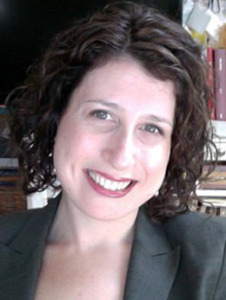
Pre-Clinical Courses May Counter Oncologist Shortage
Pre-Clinical Courses May Counter Oncologist Shortage
November 4, 2014
Medical Research, Press Releases
“In the next decade, cancer patients in the United States are going to face serious obstacles in getting the lifesaving care they need.”
BEER-SHEVA, Israel, November 4, 2014 — With the world facing a shortage of oncologists, Ben-Gurion University of the Negev (BGU) researchers have determined that preclinical study of oncology may increase the number of students entering the field and may make them more empathetic and concerned about ethical issues of treatment.
The study was published in the journal, Academic Medicine, and led by Dr. Leeat Granek, an assistant professor and health psychologist in BGU’s Department of Public Health and Prof. Samuel Ariad, head of the Oncology Department at Soroka University Medical Center and BGU’s Oncology Institute.
In 2014, the American Society for Clinical Oncology reported that while the demand for cancer care services has doubled, the number of practicing oncologists is likely to increase by only 28 percent in the next decade. The report concludes that nearly 450,000 new cancer patients in the United States are going to face serious obstacles in getting the lifesaving care they need. Modern treatments are able to prolong survival for many patients, making cancer a chronic illness that will need to be managed by all health care professionals, not just oncologist professionals.
The authors designed and implemented a one-week introductory preclinical oncology course for second-year medical students at BGU. In 2013, 77 students completed surveys pre- and post-course. The course presented a holistic approach to caring for patients with cancer that goes beyond the biological aspects of the disease.
The research showed an increase in the number of students considering specializing in oncology – from 22 percent pre-course to 39 percent post-course. These issues are especially pertinent across the globe today, including in Israel and North America. In Israel, the ratio of newly diagnosed patients to oncologists was 24,992 cancer patients to 180 oncologists in 2010.
The study also reported a promising increase in students’ empathy toward cancer patients despite the trepidation about causing them suffering. “Our findings indicate the need for medical schools to include this type of curriculum in their preclinical studies so students may learn to communicate more easily with patients about death and dying, and can help develop a heightened sensitivity toward causing unnecessary pain,” says Dr. Granek.
The researchers also believe such courses may be one way to counteract the well-documented phenomenon of the decrease in empathy among medical students as they advance in their training. As one of my students concluded, “I won’t forget my humanity or the humanity of my patients.”
Other members of the research team included: Dr. Irena Lazarev and Prof. David Geffen from the BGU Department of Oncology and Soroka University Medical Center; Ms. Shira Birenstock-Cohen, Social Work Service, Department of Oncology, Soroka University Medical Center; Prof. Klaris Riesenberg, Infectious Diseases Institute, Soroka University Medical Center, and vice dean of BGU’s Joyce and Irving Goldman Medical School.
ABOUT AMERICANS FOR BEN-GURION UNIVERSITY
By supporting a world-class academic institution that not only nurtures the Negev, but also shares its expertise locally and globally, Americans for Ben-Gurion University engages a community of Americans who are committed to improving the world. David Ben-Gurion envisioned that Israel’s future would be forged in the Negev. The cutting-edge research carried out at Ben-Gurion University drives that vision by sustaining a desert Silicon Valley, with the “Stanford of the Negev” at its center. The Americans for Ben-Gurion University movement supports a 21st century unifying vision for Israel by rallying around BGU’s remarkable work and role as an apolitical beacon of light in the Negev desert.
About Ben-Gurion University of the Negev
Ben-Gurion University of the Negev embraces the endless potential we have as individuals and as a commonality to adapt and to thrive in changing environments. Inspired by our location in the desert, we aim to discover, to create, and to develop solutions to dynamic challenges, to pose questions that have yet to be asked, and to push beyond the boundaries of the commonly accepted and possible.
We are proud to be a central force for inclusion, diversity and innovation in Israel, and we strive to extend the Negev’s potential and our entrepreneurial spirit throughout the world. For example, the multi-disciplinary School for Sustainability and Climate Change at BGU leverages over 50 years of expertise on living and thriving in the desert into scalable solutions for people everywhere.
BGU at a glance:
20,000 students | 800 senior faculty | 3 campuses | 6 faculties: humanities & social sciences, health sciences, engineering sciences, natural sciences, business & management, and desert research.
For all press inquiries, please contact:
James Fattal, J Cubed Communications
516.289.1496




